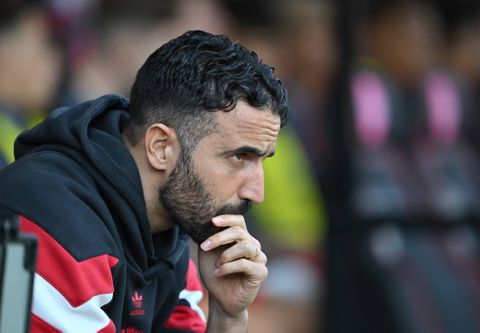After sealing promotion to the Premier League with two games to spare, Leeds United and Burnley now face a far greater challenge—survival in the top flight. Both teams have had impressive Championship campaigns, potentially finishing the season on 100 points each. But despite their dominance in the second tier, they’re already being tipped as next season’s relegation candidates. Why? Let’s break it down.
Different Journeys, Same Destination
Burnley have bounced back at the first attempt, while Leeds return after a two-year absence. Interestingly, their managers—Scott Parker and Daniel Farke—share a common thread: both have won three promotions from the Championship but have never managed to keep a team in the Premier League beyond a season.
That historical pattern raises eyebrows. But is this time different?
Will Parker Avoid Kompany’s Mistake?
Vincent Kompany guided Burnley to the Premier League in 2023 with fluid, attacking football. But his refusal to adapt that style to the Premier League led to their downfall—even as Kompany earned a move to Bayern Munich, Burnley crashed out of the league.
Scott Parker, however, has taken a more pragmatic approach. Burnley’s promotion this time is built on defensive solidity, with only 15 goals conceded in 44 games and a club-record 31-game unbeaten run. Former players like Michael Duff and Joe Hart believe Parker won’t abandon this strategy—and that could make all the difference.
Still, Parker’s Premier League record is shaky. He oversaw two relegations with Fulham, and his stint with Bournemouth ended abruptly after a 9-0 thrashing by Liverpool. Has he learned from those painful lessons?
Farke’s Shadow Under Bielsa’s Legacy
For Leeds, Daniel Farke joins Marcelo Bielsa as the only managers since 1990 to lead the club into the Premier League. But unlike Bielsa’s swashbuckling style, Farke’s success this season was built on efficiency and team unity, despite losing key players like Crysencio Summerville, Archie Gray, and Georginio Rutter.
Former striker Jermaine Beckford praised the team’s spirit, saying that while the new players may not be superior individually, they’ve performed better as a unit—with more goals scored, fewer conceded, and more points than under Bielsa.
Yet Farke’s Premier League record remains underwhelming—he couldn’t keep Norwich up either time he got them promoted.
The Harsh Reality for Promoted Teams
Surviving in the Premier League has never been tougher. From 1992 to 2022, it was rare for all three promoted teams to be relegated immediately. Now, it’s looking likely to happen in back-to-back seasons.
The main culprit? Profit and Sustainability Rules (PSR). These regulations punish clubs for overspending, capping losses at £105m over three years. Burnley CFO Sasha Ryazantsev pointed out that promoted clubs earn significantly less and spend far less on wages—half of what mid-table sides pay, and five times less than the top clubs.
This wage disparity makes it nearly impossible to compete. To survive, clubs must outsmart their rivals, because outspending isn’t an option.
Is the Squad Good Enough?
Leeds boast more attacking flair, while Burnley are defensively rock-solid.
For Leeds, Welsh trio Dan James, Joe Rodon, and Ethan Ampadu bring Premier League experience and resilience. Promising talents like Willy Gnonto and Joel Piroe add firepower, with Piroe netting 19 goals this season.
Burnley’s standout performer is goalkeeper James Trafford, with 28 clean sheets in 43 games. He’s supported by a youthful but dependable defence led by Maxime Esteve and CJ Egan-Riley—both only 22.
However, as Glen Little rightly points out, Burnley desperately need a proven Premier League striker—a mistake they paid for last time around.
Will There Be Transfer Firepower?
Both clubs have American owners with deep sports connections. Leeds are backed by San Francisco 49ers Enterprises, with golf stars like Jordan Spieth and Justin Thomas among the investors. Red Bull also owns a stake. Meanwhile, Burnley are majority-owned by ALK Capital, with ex-NFL star JJ Watt involved.
Leeds are reportedly in a strong financial position, although they still owe £142m in unpaid transfer fees. Expect player sales to offset that, and Farke is likely to be backed—something he lacked at Norwich.
Burnley, having spent heavily two years ago only to be relegated, must decide: stick with their young, promising squad, or invest in experienced top-flight players? Glen Little believes the latter is essential—especially signing a reliable goal-scorer.
Final Verdict: Hope or History?
Both Leeds and Burnley have the foundation to survive, but history is not on their side. With financial constraints, managerial baggage, and a brutal Premier League landscape, survival will demand more than just talent—it will take adaptability, smart recruitment, and unity.
But football is a game of surprises, and both clubs have proven this season that they can defy expectations. If Parker and Farke learn from past mistakes and bolster their squads wisely, there’s every chance that Leeds and Burnley won’t just survive—they could thrive.




































